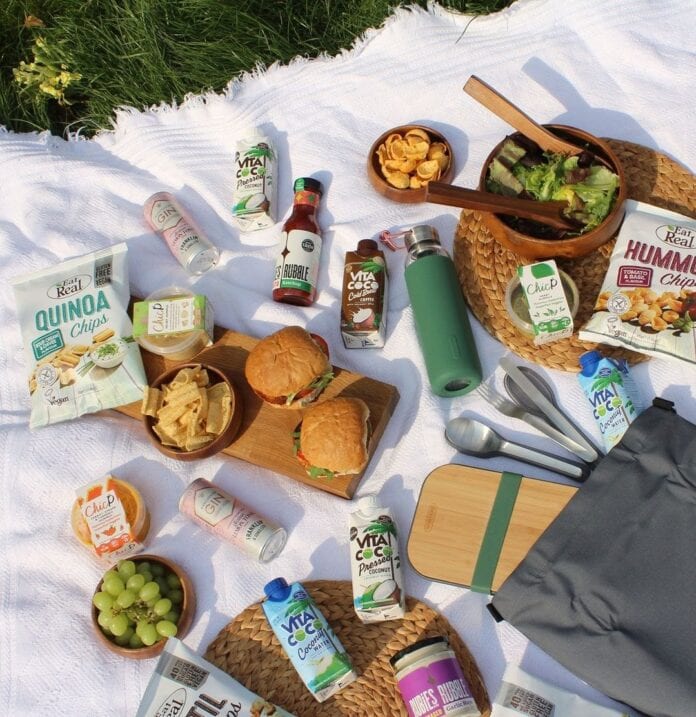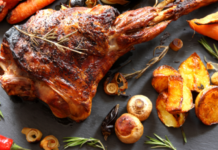Experts reveal why we may experience painful swelling in the upcoming heatwave
-
The gut can often be the first thing to react to the heat due to blood vessels expanding leading to a fluid leak in the gut
-
Bloating happens when you lose vital water and electrolytes and the body tries to retain what it has left
-
Coconut water helps re-hydrate and replenish the body quickly as it has naturally occurring electrolytes (potassium) and can help offset dehydration symptoms
Temperatures in the UK are set to soar next week, with reports stating that London may be rain free for a staggering twenty-five days. Expect the usual rush to buy sun cream and relocating your office to the garden, but one thing you may not expect is the unwelcome bloating…
It’s no secret the health benefits a much-needed, sunshine-induced dose of vitamin D can provide, from boosting our mood to improving muscle and brain function, but one thing that’s not as widely reported is the link between the summer season and stomach bloating. But why is this?
Image ℅ @liz.bitesback
Experts state that unfortunately our gut can often be the first thing to react to the heat due to blood vessels expanding leading to a fluid leak in the gut. What’s more, Certified Holistic Nutrition Consultant Stephanie Papadakis and founder of Gut Integrity told Bustle that hot weather “can lead to dehydration,” “which can cause our stomachs to become bloated.”
As the body sweats and tries to lower its internal temperature, you lose vital water and electrolytes and your body (if it starts to lose too much) tries to retain what it has left. This fluid retention can often lead to digestive bloating, leaving you feeling uncomfortable and often tired, dizzy and lethargic.
Not ideal… So what can we do to fight hot-weather bloating?
Hydrate, hydrate, hydrate
It may seem odd to drink a lot of fluid when you’re feeling bloated, but instead of downing pints of water, try to prevent dehydration by continuously sipping water throughout the day.
Krist Best from Regular Girl explains the benefit of upping your water consumption: “Your stomach may become bloated when your digestive system can’t break down the food you consume. Your body needs fluids for this process. To try and prevent this, it’s vital you drink plenty of water throughout the day, including mealtimes.
Alternatively, try coconut water to rehydrate and replenish the body quickly. With naturally occurring electrolytes (potassium), it can help offset dehydration symptoms. Vita Coco’s Pressed coconut water combines the fleshy meat from the coconut for a sweeter, coconutty taste, and with just 24cal per 100ml carton, a 500ml carton also provides your entire daily dose of Vitamin C.
Image ℅ Vita Coco
Be careful of trigger foods
Personal Trainer and body confidence advocate Hayley Madigan regularly shares her experience with uncomfortable stomach bloating and how her body changes daily: “When we eat foods higher in salt, our bodies retain more water. Alcohol and caffeine also affects our bloating.”
Image ℅ @hayleymadiganfitness
Embed code in notes to editor
Mike Jones, health expert and owner of Better Happy discusses the link between bloating and an increase in fruit and vegetable intake in the summer months: “It’s common for people to significantly increase the amounts of fruits and vegetables they eat when the sunshine arrives.”
“This often leads to increased fibre levels, which isn’t always a bad thing, but does have the potential to cause bloating. Especially when people have been on a low fibre processed diet throughout the winter.”
Fibre-rich vegetables, including broccoli and cauliflower, can cause discomfort and trigger bloating, as well as beans and lentils, and drinks such as caffeine, alcohol and fizzy pop.
Consider switching some of these in your diet if you notice bloating symptoms, and instead opt for foods with naturally high water content, such as spinach, avocado and yoghurt.
We love this green smoothie bowl from becs_fitbites on Instagram, which contains avocado, spinach, pineapple, cucumber, mango, ginger and coconut water. The perfectly refreshing treat for a hot day.
Image ℅ @becs_fitbites
embed code in notes to editor
Ditch the pop!
Is there anything more refreshing than an ice-cold can of Coke or Fanta Lemon (hello holidays) on a hot day? But any type of fizzy drink releases serious amounts of carbon dioxide which often make us feel bloated and uncomfortable.
Instead, opt for a soothing peppermint or ginger tea which promotes healthy digestion and calms your stomach. Pop a few ice cubes in and let it cool to make a refreshing cold brew.
Feed the positive bacteria in your gut
Eve Kalinik, author of Happy Gut, Happy Mind, and Holland & Barrett nutritionist Isabel Tarrant said: “Gut bacteria influences everything. The most well-known link is with digestive health, but 70 percent of our immune cells are inside our gut, so it’s the epicentre of our immune system.
“A lot of people might deem their gut symptoms – such as not going to the toilet for a week – normal, because they’re used to it. But regular bowel movements are a sign that things are working as they should be,” says Kalinik. “Gut symptoms would be cramping, excess gas, constipation and/or diarrhoea.
“It’s a misconception that to be healthy, you have to cut out food groups. For gut health, it’s about enriching your diet and rotating colours,” says Kalinik.
“Darker, colourful foods, such as berries, purple carrots, dark chocolate, green tea, spinach and grapes, are all rich in polyphenols,” adds Tarrant. “Foods containing prebiotic fibres feed the positive bacteria in our gut, and examples of these are garlic, chickpeas, lentils, artichokes and onions.”
Image source – Unsplash
Help keep news FREE for our readers
Supporting your local community newspaper/online news outlet is crucial now more than ever. If you believe in independent journalism, then consider making a valuable contribution by making a one-time or monthly donation. We operate in rural areas where providing unbiased news can be challenging. Read More About Supporting The West Wales Chronicle
























